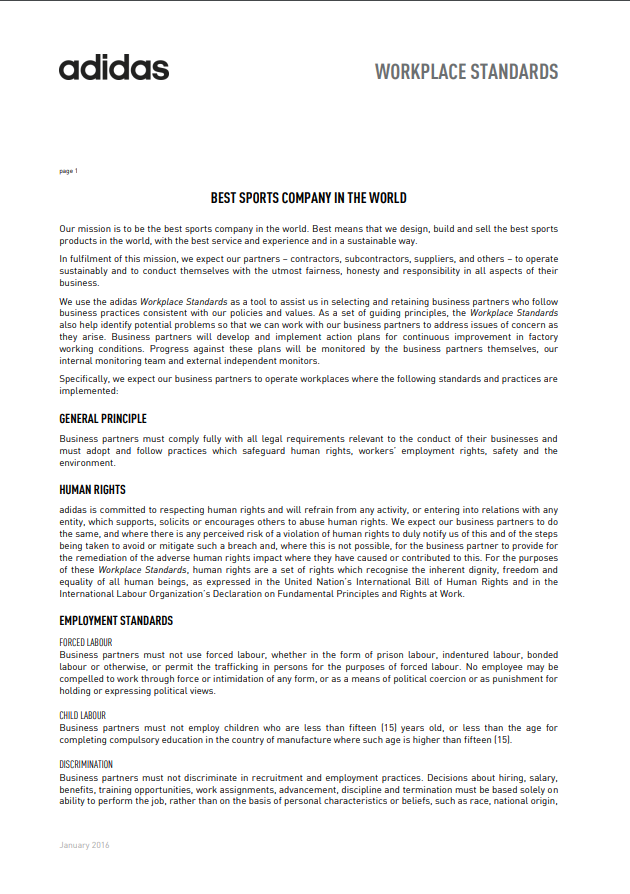The Workplace Standards are rules Adidas applies at their own sites and our suppliers’ factories to cover health and safety, labor rights and environmental protection. The Standards draw from international law and the International Labour Organization (ILO) conventions, and follow the model code of conduct of the World Federation of Sporting Goods Industry (WFSGI). Adidas revised the Workplace Standards in 2001, 2006 and 2016 in consultation with labor rights groups.
Adidas expects all our suppliers to live up to these Standards. They are a contractual obligation under the manufacturing agreements Adidas signs with its main business partners.

